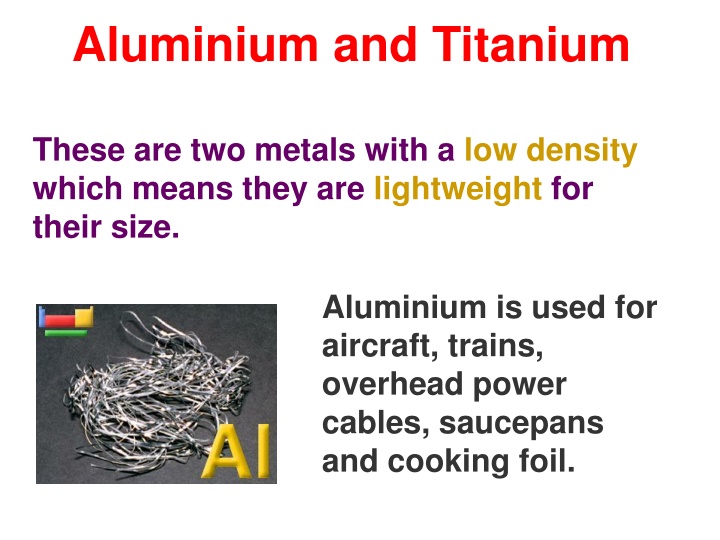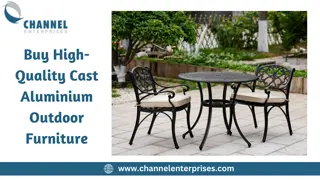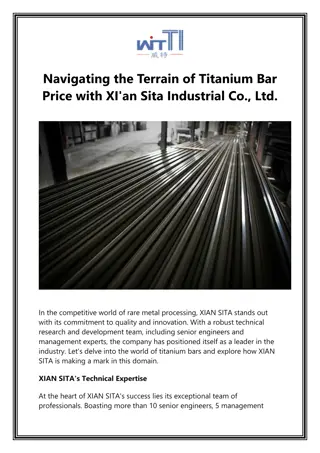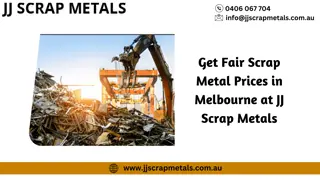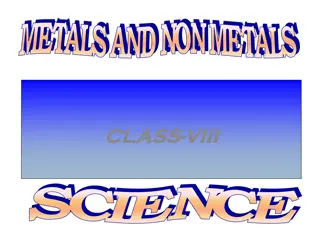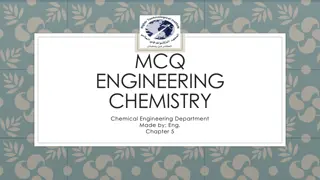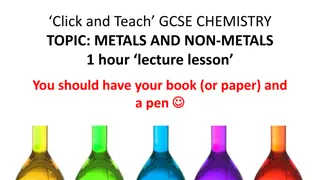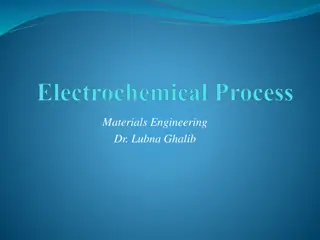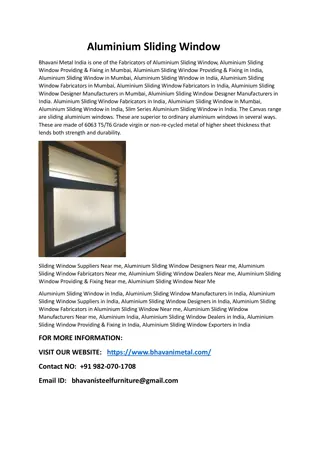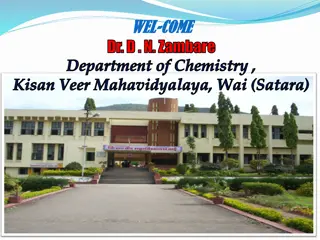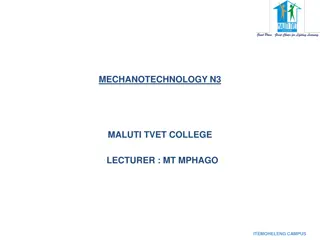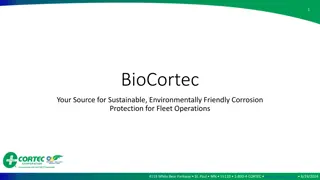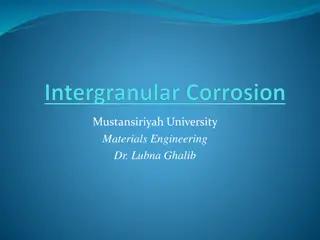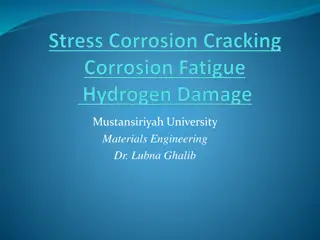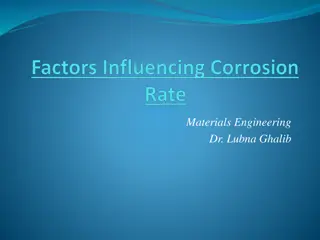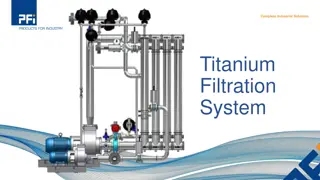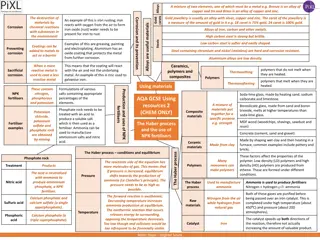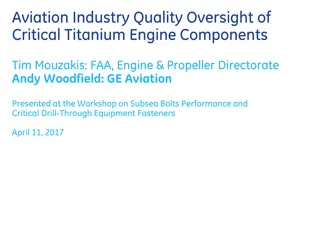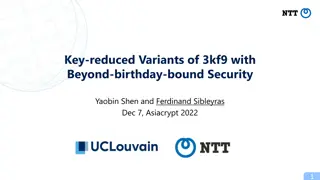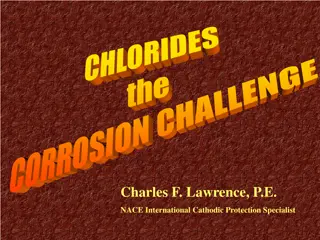Lightweight and Corrosion-Resistant Metals: Aluminium and Titanium
Two metals, Aluminium and Titanium, known for their low density and resistance to corrosion, are essential in various industries. Their extraction processes are expensive due to energy requirements and multiple stages involved. Aluminium is extracted from bauxite using the Bayer process, while Titanium is isolated through the Kroll method. These metals find applications in aircraft, trains, kitchenware, and more due to their lightweight nature.
Download Presentation

Please find below an Image/Link to download the presentation.
The content on the website is provided AS IS for your information and personal use only. It may not be sold, licensed, or shared on other websites without obtaining consent from the author.If you encounter any issues during the download, it is possible that the publisher has removed the file from their server.
You are allowed to download the files provided on this website for personal or commercial use, subject to the condition that they are used lawfully. All files are the property of their respective owners.
The content on the website is provided AS IS for your information and personal use only. It may not be sold, licensed, or shared on other websites without obtaining consent from the author.
E N D
Presentation Transcript
Aluminium and Titanium These are two metals with a low density which means they are lightweight for their size. Aluminium is used for aircraft, trains, overhead power cables, saucepans and cooking foil.
Titanium, when pure, is a lustrous, white metal. The metal burns in air and is the only element that burns in nitrogen. It is marvellous in fireworks.
Aluminium and Titaniumresist corrosion as they have a very thin layer of their oxides on the surface, which stops air and water getting to the metal.
Extraction Unlike iron, aluminium and titanium cannot be extracted from their oxides by reduction with carbon because: Aluminium is more reactive than carbon, so the reaction does not work. Titanium forms titanium carbide with carbon, which makes the metal brittle.
Aluminium is mined in huge scales as bauxite. In order to isolate pure aluminium, impurities must be removed from the bauxite. This is done by the Bayer process, which involves treatment with sodium hydroxide solution, followed by purification using electrolysis.
Titanium is isolated using the Kroll method. This involves the action of chlorine and carbon on the titanium ore followed by fractional distillation and then reduction with magnesium.
COST Aluminium extraction is expensive because the process needs a lot of electrical energy. Titanium extraction is expensive because the process involves several stages and a lot of energy. This especially limits the uses of titanium.
Summary Aluminium and Titanium both have a low density which means they are lightweight for their size. They resist corrosion. They cannot be extracted by reduction. Extraction is expensive because there are several stages involved and the processes require a lot of energy.
This powerpoint was kindly donated to www.worldofteaching.com http://www.worldofteaching.com is home to over a thousand powerpoints submitted by teachers. This is a completely free site and requires no registration. Please visit and I hope it will help in your teaching.
